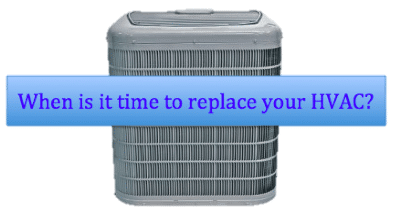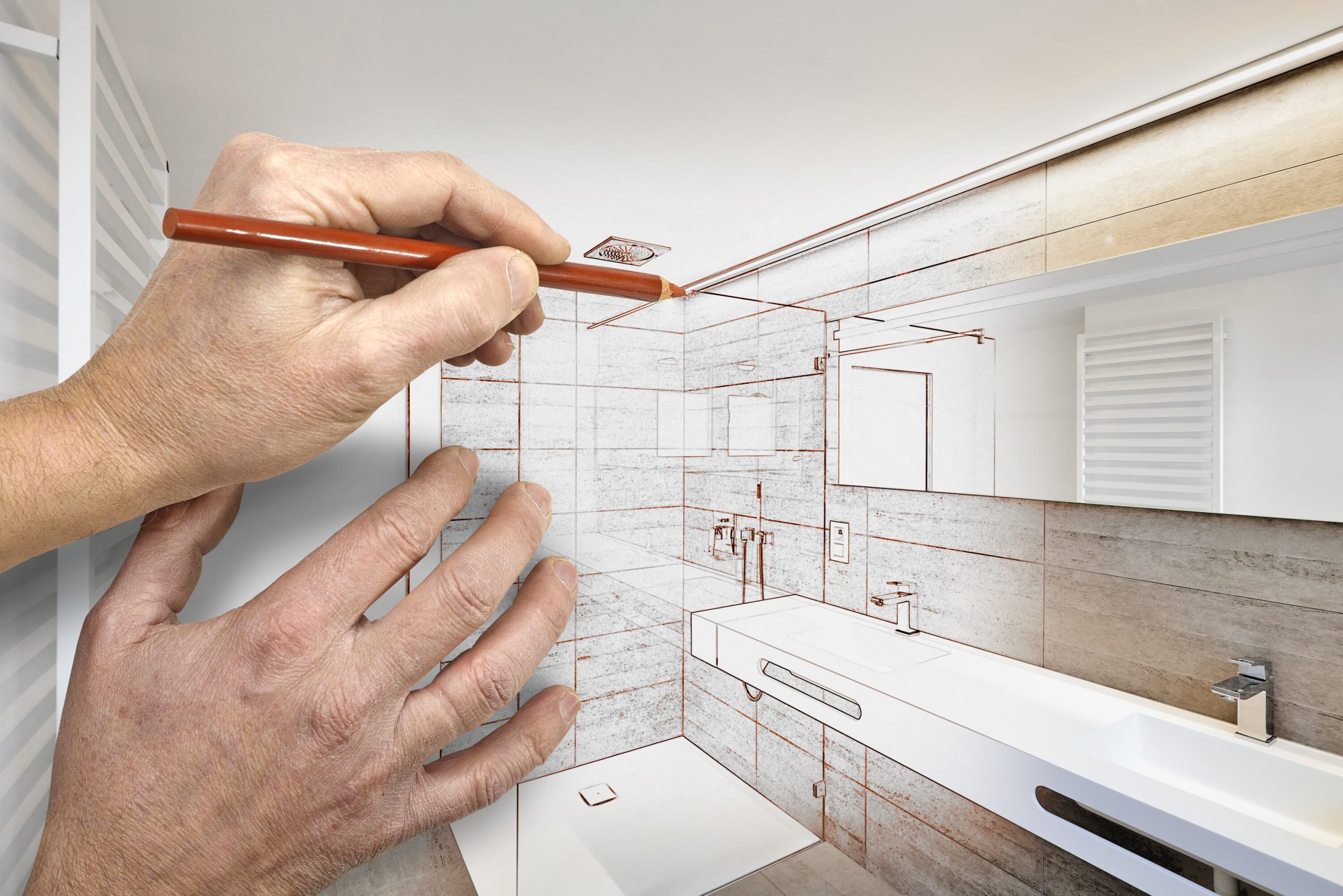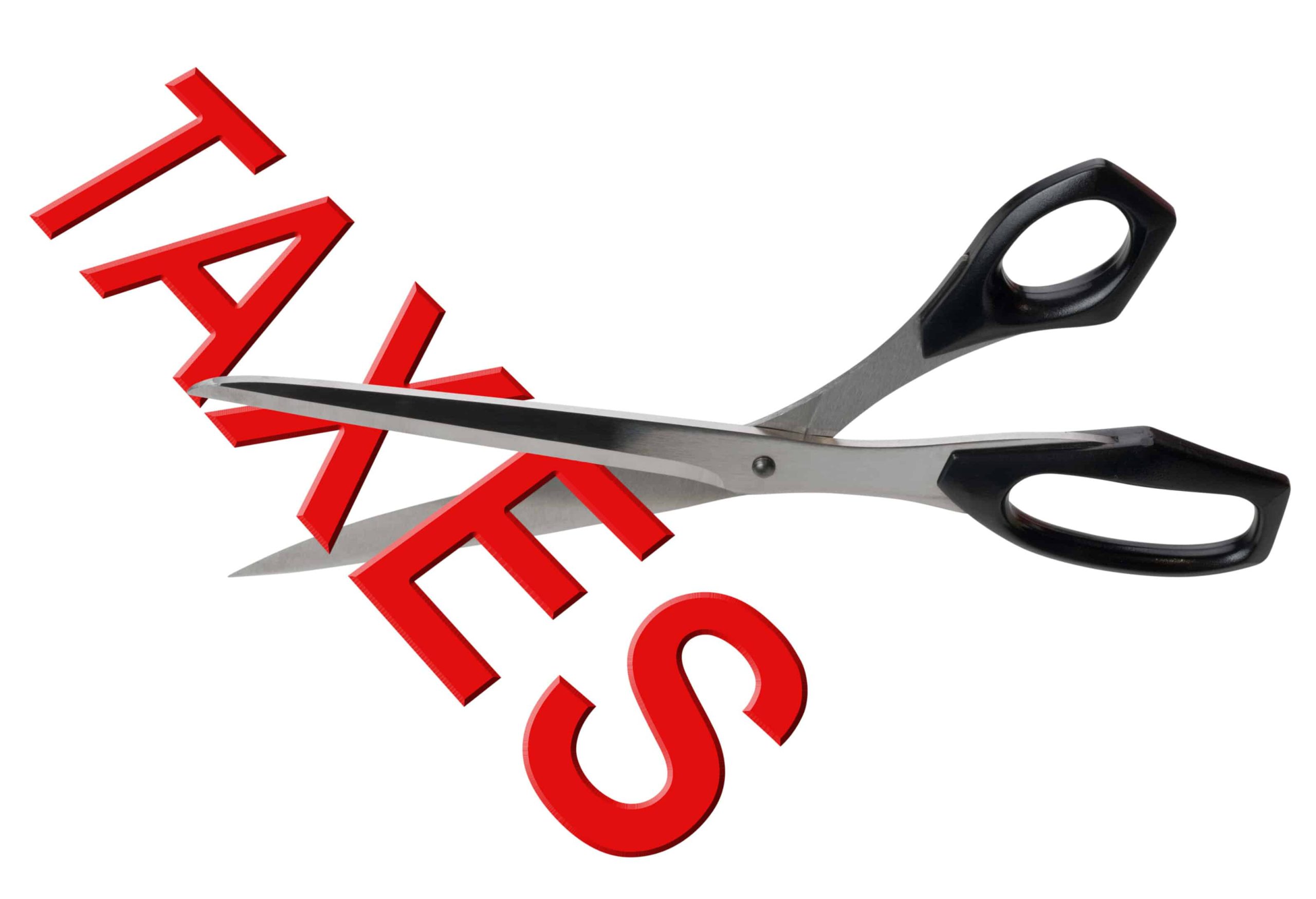5 Reasons Why Your HVAC Unit is Loud Do you find your HVAC unit excessively…

Things to Consider When Replacing Existing Heating and Air Conditioning Unit
Replacing your HVAC unit is a big investment. It is one that many people try to put off for as long as possible by repairing units that break down. This approach may save money in the short-term. In the long run at some point the time comes to replace the unit. The trouble is—how do you know when you’ve reached that point? Here are a few things to consider.
See also: Don’t wait to get your HVAC fixed
What is the lifespan of an HVAC unit?
Air conditioning units and heat pumps are generally expected to have a lifespan of about 10-12 years. Furnaces may last 15-20 years. If your unit is approaching that age, or past it, pouring more money into repairs may not be a good idea. Some HVAC experts recommend using the “Rule of 5000”: Multiply the cost of the repair times the age of the unit. If the total is over 5000, then it’s probably more cost-effective to replace the unit rather than repairing it. (If you had a $600 repair bill and your unit is 10 years old, it is more efficient to replace the unit)
Another reason to consider the age of your HVAC unit is that older units tend to be less efficient than newer ones. If your utility bills have been increasing, that may be a sign that your HVAC unit is becoming less efficient with age. Plus, newer technology can be significantly more efficient overall. According to energystar.gov, purchasing a new unit, especially one that is Energy Star rated, may save you as much as 20% on your utility bills.
It’s also worth noting that replacing an older unit can have other benefits in addition to increased comfort and saving money on your utility bill. A new unit will come with a new warranty, saving you money and worry over unexpected costs. There may also be state and federal rebates and tax credits available, especially for Energy Star rated equipment. Taking these potential savings into account may make investing in a new unit an even better deal.
See Also: When should I replace my HVAC
What does and HVAC Rating Mean?
It’s very important to be aware that the refrigerant from units prior to 2010 are designed to use R-22, will be prohibited after January 1, 2020. That means your air conditioner will not be able to repaired or refilled with refrigerant after that date, which could leave you stuck without air conditioning for days while you wait for a new unit to be installed. To avoid that situation, your best option is to go ahead and replace your air conditioner with a new model before 2020. Making repairs now on an HVAC unit that will need to be replaced in less than four years anyway is probably not be cost-effective.
See also: R22 Phase out Information
What is 410a refrigerant
Do you have uneven temperatures in your rooms?
Uneven temperatures can be a sign that your system is wearing down, or that it simply isn’t the right size for your home. This can particularly be a problem with houses that have been renovated since the HVAC was installed. However, sometimes uneven heating or cooling can be caused by other issues, such as leaks in the ductwork. You may want to have that checked out before deciding to invest in a new unit.
Ultimately, a trained HVAC technician can best assist you with evaluating all the issues involved in your particular situation. Purchasing a new heating and/or air conditioning unit is a big investment, but one that may save you a lot of money in the long run while improving the comfort of your home.
See also: Should I close air vents in unused rooms?
Should I close doors in unused rooms?
Is a bigger HVAC unit better?
What Size HVAC Do You Need?
When the time comes to replace your HVAC system, one of the major factors affecting both cost and comfort is the size of the new unit. A unit that’s too small won’t be able to effectively heat or cool your home, while a unit that’s too large won’t run efficiently, which will drive up your energy bills. So you want to make sure that the unit you choose is Goldilocks-approved—in other words, just right.
Heat pumps and air conditioners are measured in tons, but this doesn’t refer to how heavy the unit is. Instead, it indicates how much cooling power the unit has. Standard residential HVAC units run from 1-5 tons. If your home needs a unit larger than 5 tons, then you’ll probably need to get two units.
How many “tons” of cooling power does a home need?
Well, that depends on several factors. The first and most obvious factor is the size of your home. In general, a larger home will need a larger unit, or most likely multiple units for best efficiency. However, you can’t accurately select the right unit just based on your home’s square footage
Another important factor is the climate zone that your home is in. Here in the Tennessee Valley, we’re in Climate Zone 2. That means we need more cooling power per square foot than someone who lives in Virginia (Zone 3), but less than someone who lives in Florida (Zone 1). Likewise, we don’t need as much heating as those who live to the north, but we need more than the folks down in Mobile.
Many other individual details of your home affect what size unit you need. For instance, how many windows do you have and what directions do they face? How much insulation is in your attic? What types of lighting are used in your home? How high are your ceilings? Do you have skylights? All of these factors can make your home easier or harder to keep at a comfortable temperature.
Ultimately, the best way to determine what size HVAC unit is “just right” for your home is to have your house evaluated by a licensed technician like our Comfort Specialists.
They can take into account all of the individual factors affecting your home so you don’t end up wasting money now or in the long run, and so that your investment in a new HVAC system will pay off in greater comfort for you and your family.
See also: What size HVAC do I need?
HVAC size Matters
Is a Bigger HVAC Unit better?
Technology and Equipment Changes
Every few months, when the newest version of some popular smartphone is released, fans line up outside of stores to make sure they have the latest and greatest technology before anybody else, even if they just bought a new phone less than a year ago! And few people today would be happy using televisions or computers that are more than a decade old
But when it comes to HVAC systems, many homes still have the equivalent of a “dumb” flip-phone or a big, boxy “tube” TV. Just like with phones and televisions, major advancements in HVAC technology and equipment have been made in the last ten to twenty years. So if you haven’t shopped for a new HVAC since before phones got cameras in them, here are a few exciting new options to look for.
See also: How to Shop for an HVAC Unit
What do it mean to have a High-efficiency systems
New high-efficiency HVAC systems use far less energy to heat and cool your home than the older models did. Older furnaces on average convert 80% of fuel energy to heat, while newer, high-efficiency models convert 95% or more, meaning much less energy is wasted in the heating process. New high-efficiency air conditioners, meanwhile, use so much less electricity than older models that they can decrease utility bills by up to 20%.
See Also: Does Energy Efficient Mean a Lower Utility Bill
How to Efficiently use a Heat Pump
What do HVAC Ratings Really Mean?
What is the benefit of a variable speed fan blower?
Previously, the fan or blower in an HVAC system generally had two speeds: on and off. But variable speed fans are actually able to speed up or slow down. A variable speed fan can run slowly to maintain a comfortable temperature—or speed up to quickly heat or cool the house when needed.
Is there a benefit to a dual fuel heat pump?
This system combines the best features of both an electric heat pump and a gas furnace. At temperatures above 35 degrees, the electric heat pump provides extremely energy efficient heating, but when the temperature drops below 35, the gas furnace takes over, making sure you stay warm and cozy on the coldest nights.
See Also: How to Efficiently Use a Heat Pump
How Can you Protect Your New HVAC Investment?
Don’t forget that when you get this new system that you get a Service Partner Plan. This will help keep your unit running right. Not only do you save on all repairs, you have peace of mind.
In Conclusion
These are only a few of the great innovations available today that can improve the efficiency and comfort of your home. Our phones have gotten smarter—isn’t it time your HVAC system got smarter too?


